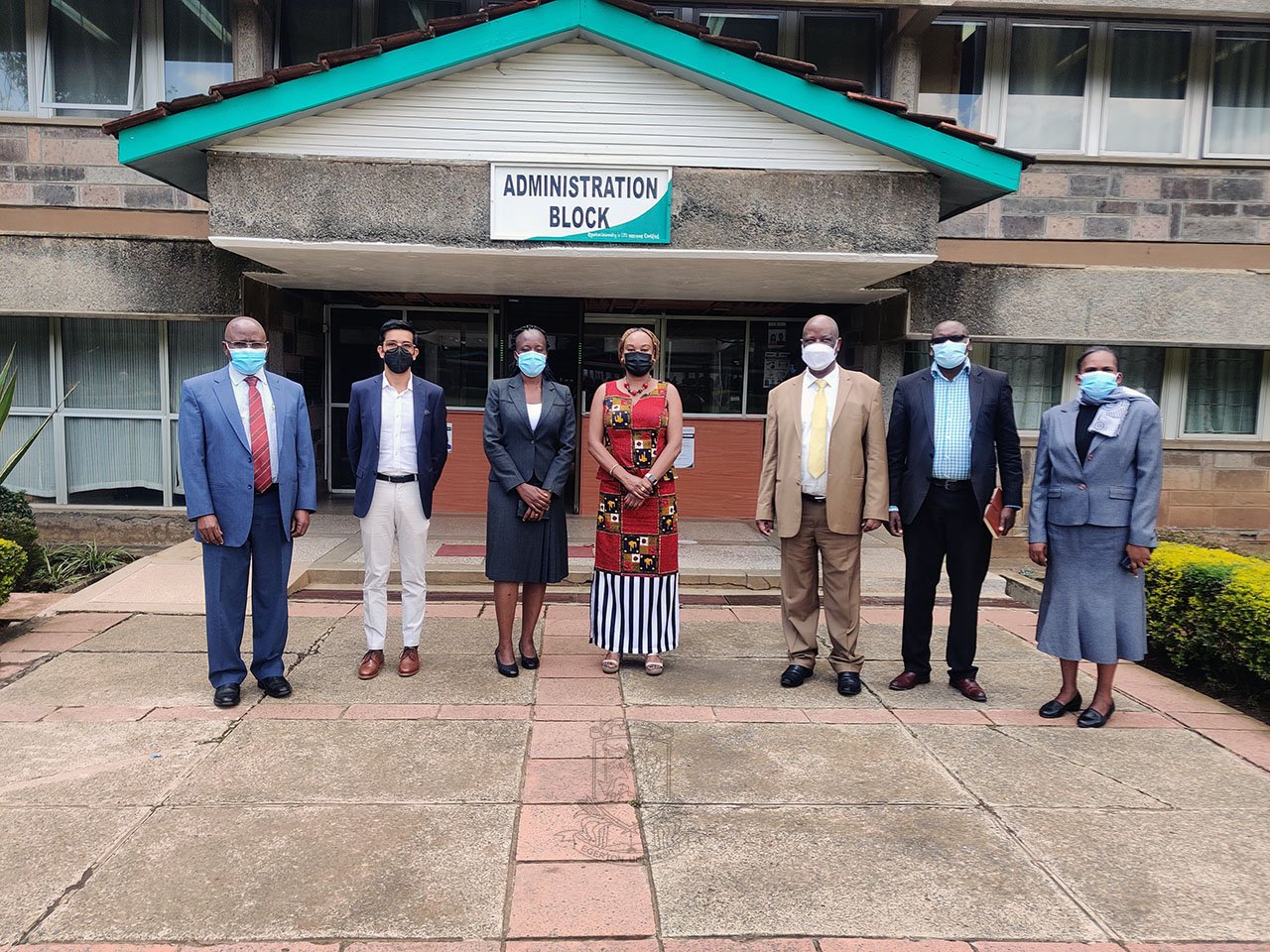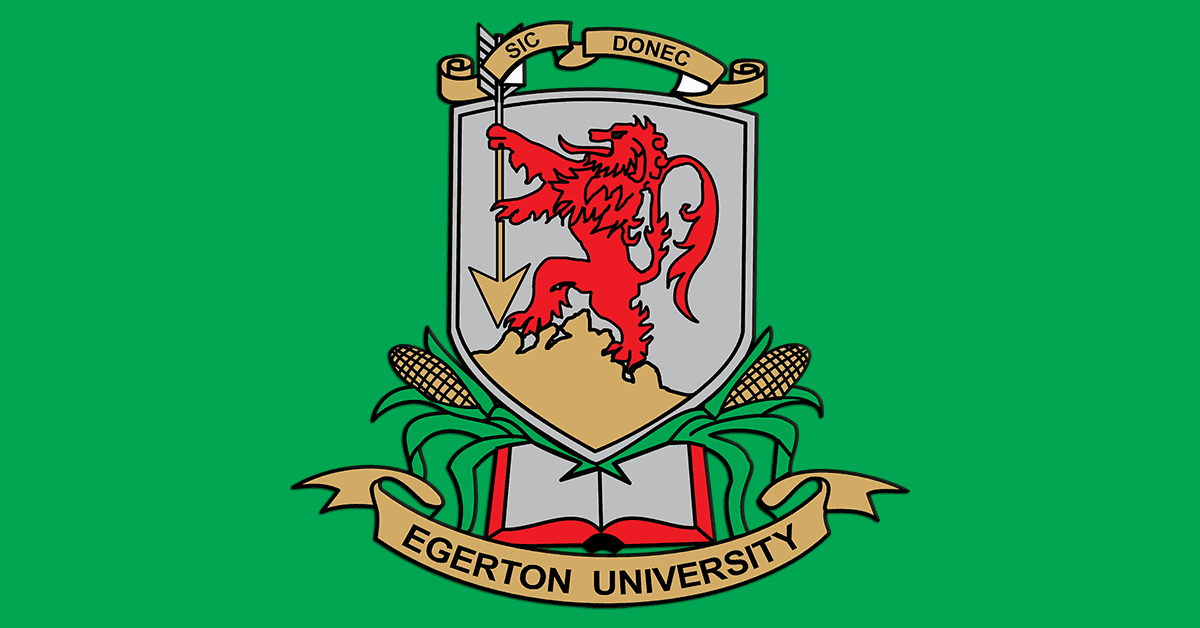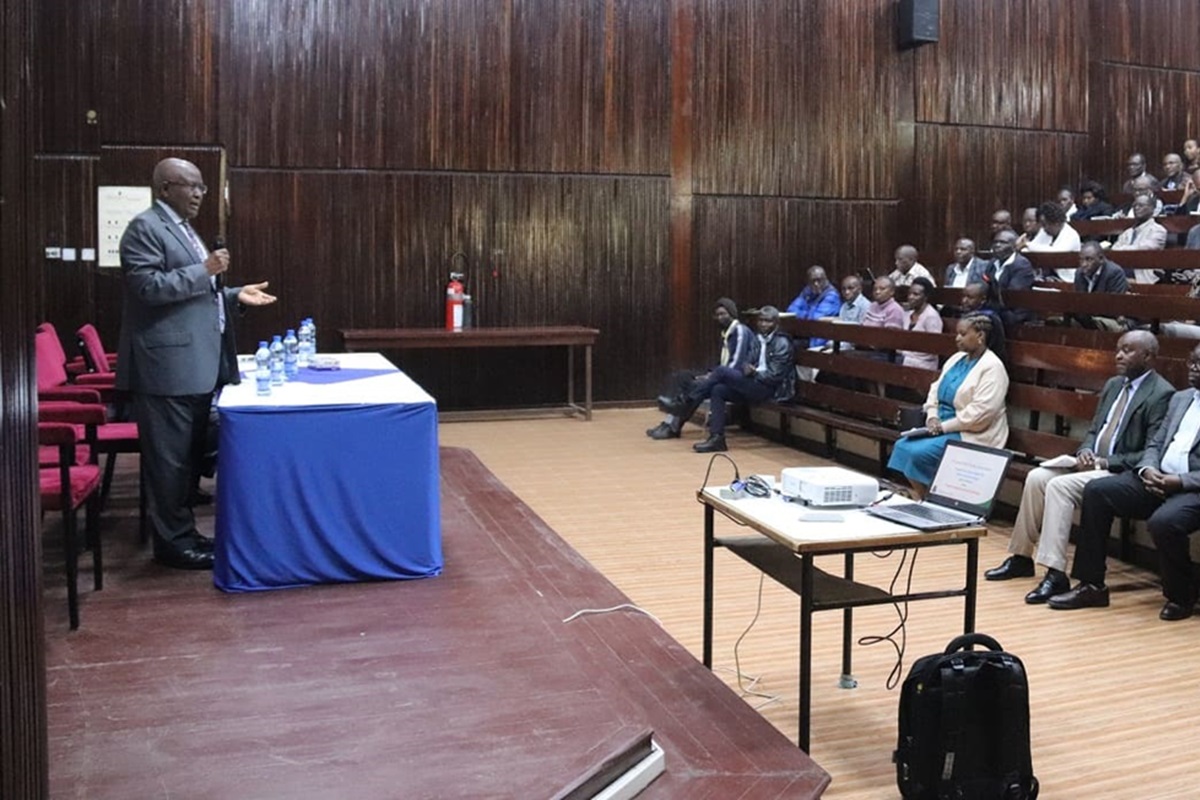Community-based projects tend to be expensive, but with the funding and capacity we have, we can address and provide interventions in food and nutrition security to the Government of Kenya. I will support the project team in the implementation of its working packages
Professor Kibwage
Egerton University partners with the University of Nairobi and the University of Hohenheim, Germany, in the Strengthening Urban Resilience in Food and Nutrition Security (SURE) project in Kenya
Egerton University and the University of Nairobi have partnered with the University of Hohenheim (Germany) in the Strengthening Urban Resilience in Food and Nutrition Security (SURE) project in Kenya. The project, funded by the Federal Ministry of Education and Research (BMBF) in Germany to a tune of € 624,999.94 (roughly Ksh 80 million), runs from 1 June 2021 to 31 May 2024 and will be conducted at informal settlements at urban centres in Nairobi county (Kangemi, Mathare, Kawangware and Kibera).
Speaking during a courtesy call to the acting Vice-Chancellor Professor Isaac Kibwage, Dr Catherine Kunyanga, the Principal Investigator from the University of Nairobi, noted that the project’s goal is to strengthen knowledge and resilience systems in the provision of adequate, safe, nutrition-dense, preferred and affordable for the health and well-being of urban dwellers, particularly of vulnerable groups who leave in dense populated slums of urban areas of Kenya.
The implementation of the project is structured in seven working packages (WP):
WP1: Resilience Analytics: Status of Food and Nutrition Security among Urban Dwellers; WP2: Resilience Structures: Food Market Capacity; WP3 Resilience Agents: Nutrition Education and Communication; WP4 Resilience Champions: Action Plan for Food and Nutrition Security; WP5 Simulation Tool “Nutrition and Health-driven Food Security Policy Generator”; WP6 Coordination, Communication & Project Management; and WP7 International Young Scientist Conference.
 Members of the Strengthening Urban Resilience in Food and Nutrition Security (SURE) project in Kenya held a meeting with the Egerton University team on 17 September 2021 at Main Campus, Njoro. From the left is the acting Vice-Chancellor Prof. Isaac Kibwage, Co-Principal Investigator and a researcher at the University of Hohenheim in Germany Dr Hamid Reza Oskorouch, Egerton University researcher Dr Lydiah Waswa, Principal Investigator and University of Nairobi researcher Dr Catherine Kunyanga, acting Deputy Vice-Chancellor (Research and Extension) Prof. Bockline Bebe, Director Marketing and Resource Mobilization Prof. Paul Kimurto and Chairperson of the Department of Human Nutrition Dr Stellamaris Muthoka.
Members of the Strengthening Urban Resilience in Food and Nutrition Security (SURE) project in Kenya held a meeting with the Egerton University team on 17 September 2021 at Main Campus, Njoro. From the left is the acting Vice-Chancellor Prof. Isaac Kibwage, Co-Principal Investigator and a researcher at the University of Hohenheim in Germany Dr Hamid Reza Oskorouch, Egerton University researcher Dr Lydiah Waswa, Principal Investigator and University of Nairobi researcher Dr Catherine Kunyanga, acting Deputy Vice-Chancellor (Research and Extension) Prof. Bockline Bebe, Director Marketing and Resource Mobilization Prof. Paul Kimurto and Chairperson of the Department of Human Nutrition Dr Stellamaris Muthoka.
Egerton University under Dr Waswa (WP3 Leader ) will enhance nutrition knowledge and promote the consumption of diversified diets among urban households in the informal settlements, using local food resources and local knowledge.
Present during the courtesy call was Dr Hamid Reza Oskorouch, a Co-Principal Investigator from the University of Hohenheim (Germany), who said that some of the expected outcomes of the project were to find and implement solutions in food safety and nutrition security, training of Masters and PhDs students, facilitate training workshops at Egerton University and the University of Nairobi and coming up with policy briefs.
Professor Isaac Kibwage welcomed the partnership, adding that the project will contribute significantly to the Government of Kenya’s efforts of addressing food security. Food security is one of the Big Four Agenda that will ensure we reach 100% food and nutrition Security
“Community-based projects tend to be expensive, but with the funding and capacity we have, we can address and provide interventions in food and nutrition security to the Government of Kenya. I will support the project team in the implementation of its working packages,” said Professor Kibwage.
The acting Deputy Vice-Chancellor (Research and Extension) Professor Bockline Bebe noted that the Division of Research and Extension will support the project implementation, financial management, development of policy briefs, monitoring and evaluation.
A summary of the project’s objectives are to deliver the scientific evidence and data; to establish a trans-disciplinary and international network; to create and implement the Action Plan in participatory workshops, to develop capacities of researchers and policymakers; and to explore the potential of urban resilience structures.
The expected outputs from the overall project will include capacity building (PhD and MSc); intervention training modules and materials; peer-reviewed journal papers; policy briefs; an urban action plan for food and nutrition; and a simulation tool.
During the meeting held at Main Campus in Njoro were the Director Marketing and Resource Mobilization Professor Paul Kimurto, Chairperson of the Department of Human Nutrition Dr Stellamaris Muthoka, and Dr Lydiah Waswa, a researcher at the Department of Human Nutrition and WP3 Leader in the project.
On behalf of the University Management Board (UMB), the acting vice-chancellor wishes to congratulate Dr Stellamaris Muthoka and Dr Lydiah Waswa for winning the grant and thank the Federal Ministry of Education and Research (BMBF) in Germany for the funding.







